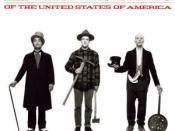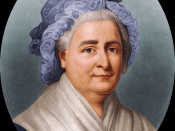At the very beginning of the 20th century, Britain was considered the 'mother' country and depended on for supplies. During the early part of the century, these ties between the two countries were considered of great importance as Australia's heritage was linked to that of Britain's.
On the 1st January 1901, Australia became a federation. This meant Australia would become a dominion, with its own constitution, national anthem and flag, but still maintain its ties with the British Empire. At this point in time, parliament was able to make laws concerning internal nation wide issues but had no control over its foreign relations and polices. The English government would decide these. Because over 50% of the Australian population were British born, and the majority of the population considered themselves 'Britains living in Australia', there was a large amount of pro-British sentiment amongst Australians
In 1907, with fear of attack and Britain not able to protect Australia, Australia attempted to strengthen alliances with the United States of America. Alfred Deakin (Australian Prime Minister) sent an invitation to Washington requesting the US Navy to visit Sydney and Melbourne as part of their world tour. The British were furious as Washington accepted the invitation. This was the first attempt by Australia of ensuring a relationship with the United States. The main reason for this political alliance was the threat of invasion by the emerging power of the Japanese.
World War I was declared on August 1914, Australia threw its full support behind the 'mother country'. Links were strong during the war, however soon after the war, the great depression broke out (1930s) and both countries were in a critical position economically . Britain was not able to sustain itself then provide supplies for Australia. The statute of Westminster was the end...


